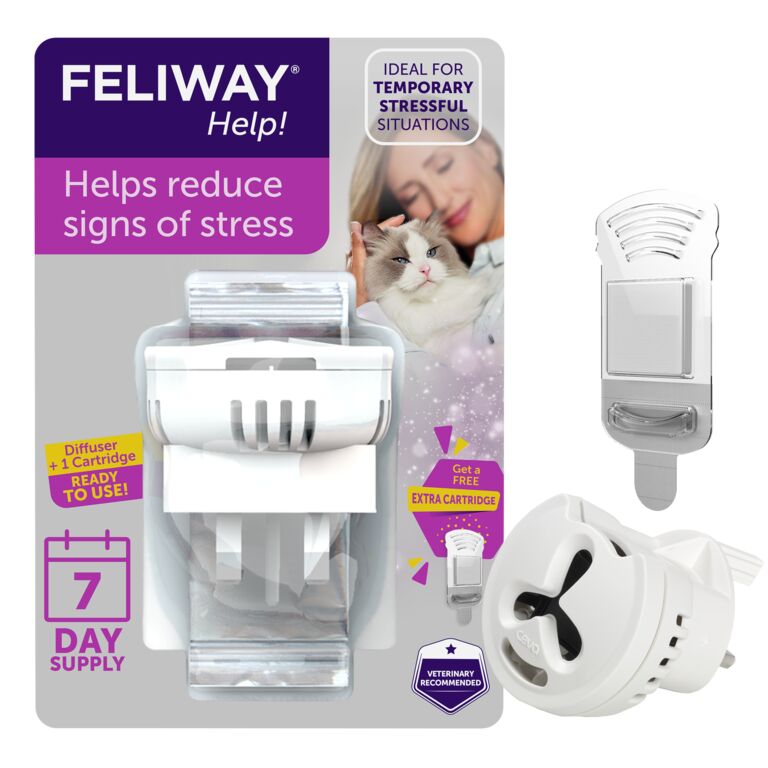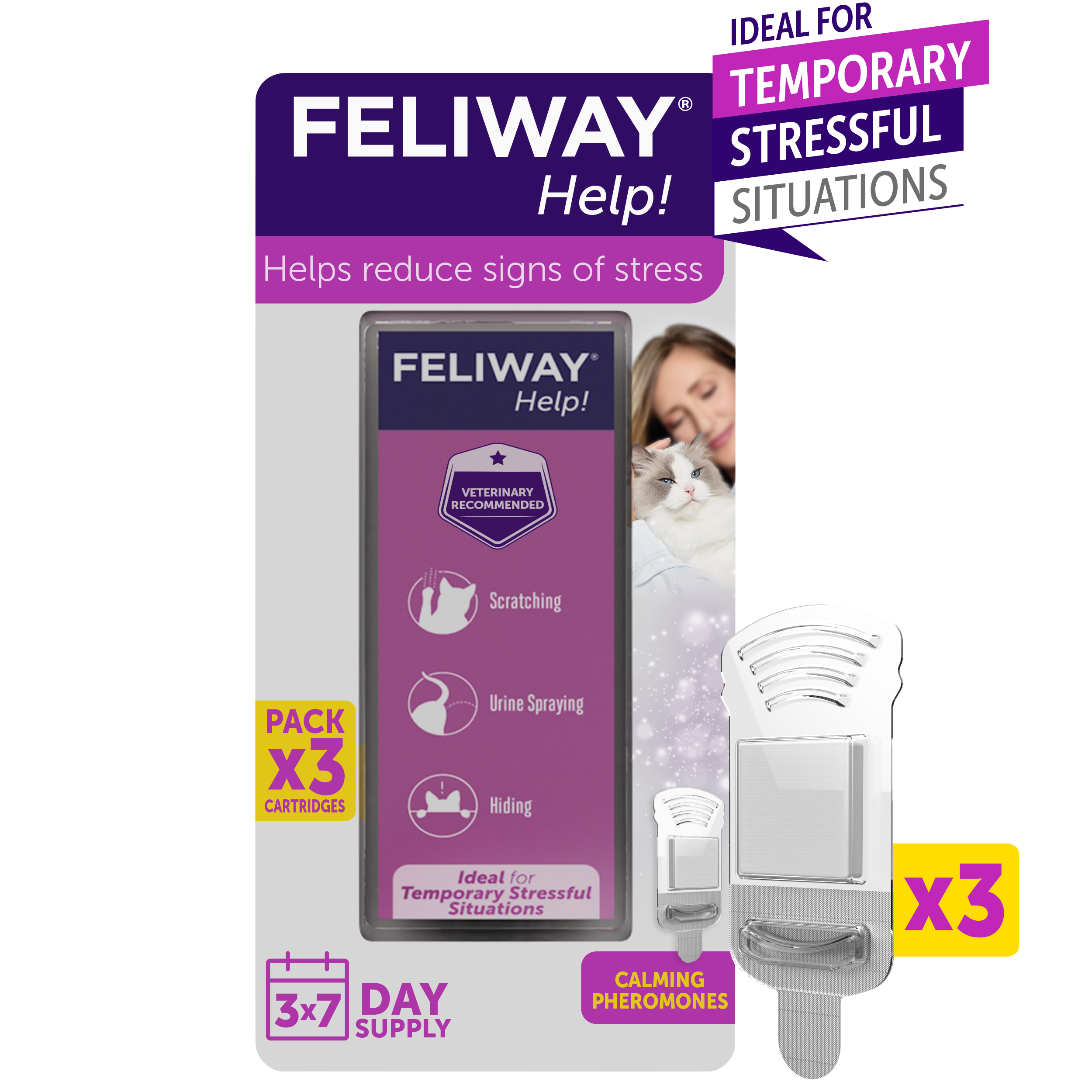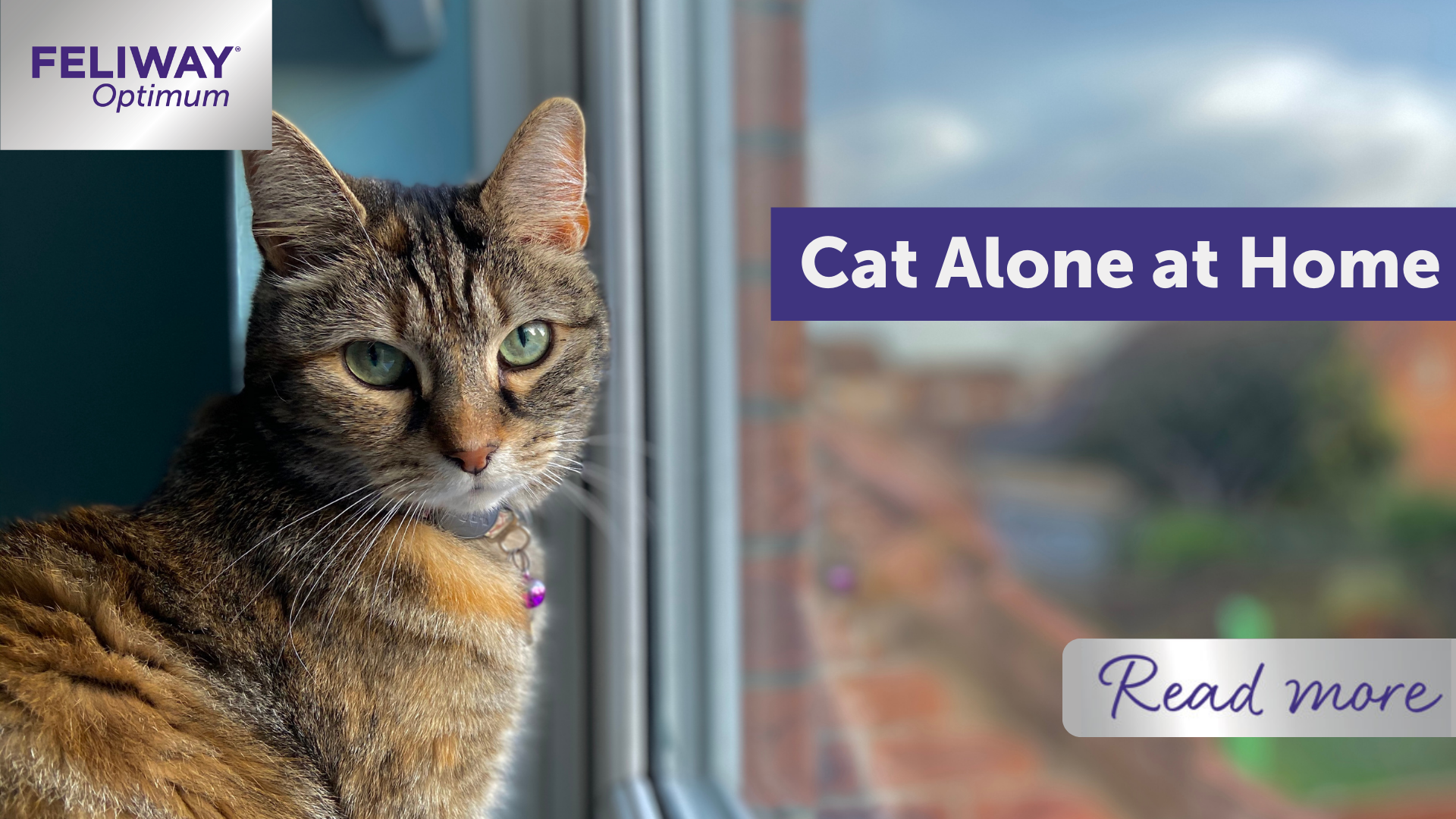
Cat Alone at Home
Even if we prefer to be with our cats 24 hours a day, sometimes it can't be avoided and you have to leave your cat alone. Read on if you're wondering what to do if you need to leave your cat at home alone, and importantly if you've wondered - how long can I leave my cat alone?
Leaving your cat alone can cause separation anxiety
There is a persistent rumour that cats are solitary loners who mainly only need their humans for short periods of attention and for their food. But now studies (ResearchGate, 2020 *) show that cats can develop loneliness which can result in signs of anxiety in cats or behavioural problems like uncleanliness or destructiveness.
Read our top tips to create a cat friendly home so when you do need to pop out, you know that your cat is doing well, after all, our four-legged friends are very sociable animals.
How long cat I leave a cat alone?
An answer that is more familiar from lawyers fits best here: "It depends." The factors that play a role in the answer are quite diverse: In addition to the character, it is also important to consider how old the cat is, whether it is purely an indoor cat, has a conspecific partner as a partner, and of course the general state of health.
The more affectionate the four-legged friend is, the less you should expect him to spend time alone. In principle, however, the following applies: under certain conditions, cats should be left without supervision for a maximum of 48 hours. The younger, more affectionate or health-impaired the cat is, the shorter the period naturally becomes. In the first few weeks, if possible, you shouldn't leave a cat alone until it has got used to its new home!
Leaving your cat alone - important considerations
As with dogs, you should first practice staying alone with a cat. Since every cat reacts differently and of course it first has to get used to it, you should plan for this early, start with a few minutes and then increase it when everything goes well.
A pet or wildlife camera is helpful because you can watch what your four-legged friend is doing when you are not there.
So that your cat does not feel lonely, you should think about the following things in advance:
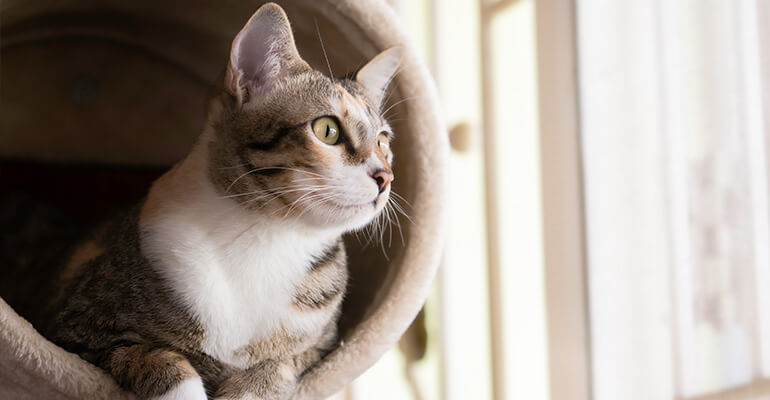
-
How can I design a home that is as cat-friendly as possible so that my four-legged friend is fine even when I'm not there? (This includes many climbing, observation and hiding places as well as scratching options and toys).
-
Can my cat go outdoors? If you kitty is used to roaming around your local neighbourhood, a cat flap may then be necessary so they can enjoy time outside when they choose.
-
In a pack, everything is easier: Especially if you are working, often there is not much time left for your four-legged friend during the week. A playmate could be a good option, as no toy in the world can replace a buddy and thus bridge the time until you are back home. Take a look at these top tips to help your cats get along, if you're not sure if your cats are friends or foes, have a go at our quiz!
Make your home cat safe
Before you start, it is important to cat-proof your home so that there are no accidents. Windows are particularly important here, these should be closed, because even tilted windows turn into death traps for curious cats. Make sure that there is no draft, as doors slamming can also lead to dangerous accidents.
A normal household will have everyday items around that can be toxic or dangerous to our feline friends. Things that we take for granted like certain houseplants, washing machines and dryers or cleaning products, some food and medicines can all pose a hazard for cats.
Cats are inquisitive creatures and when there are new items around the home, they are likely to want to investigate them.
An automatic feeder is also very helpful so that the four-legged friend can still eat something in between. Cats naturally prefer several small meals a day rather than one or two large ones. Here's our advice for all the essentials your cat needs to be happy.
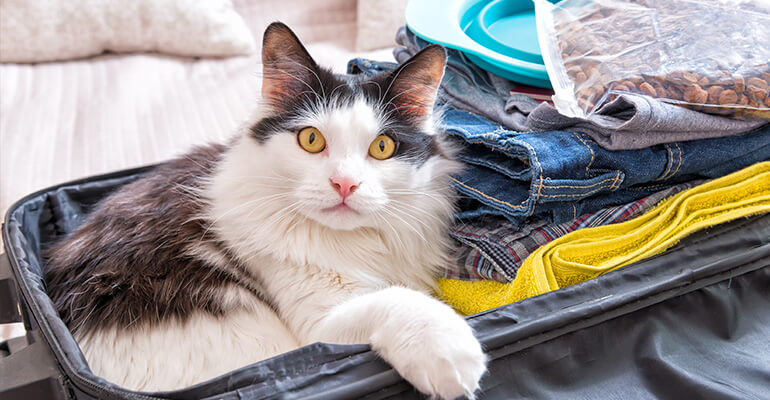
Leaving your cat alone on weekends and holidays
If you're off on holidays, care is essential and planning in advance from an early stage will benefit your cat in the long term. Finding a cat sitter, friend or family member that the four-legged friend or friends already know is ideal. Cats are creatures of habit, so it is best if they can at least stay in their familiar environment when you are away.
How FELIWAY Optimum can support your cat
Whether for training or during your holidays, FELIWAY Optimum is a great solution to help cats feel safe and secure in your home. Simply plug the diffuser into the room where your cat spends most of their time. It can also help reassure your cat when you know things are not going to be quite normal for them like when you pop out or go away on holidays.
*Identification of separation-related problems in domestic cats:
(PDF) Identification of separation-related problems in domestic cats: A questionnaire survey (researchgate.net)













